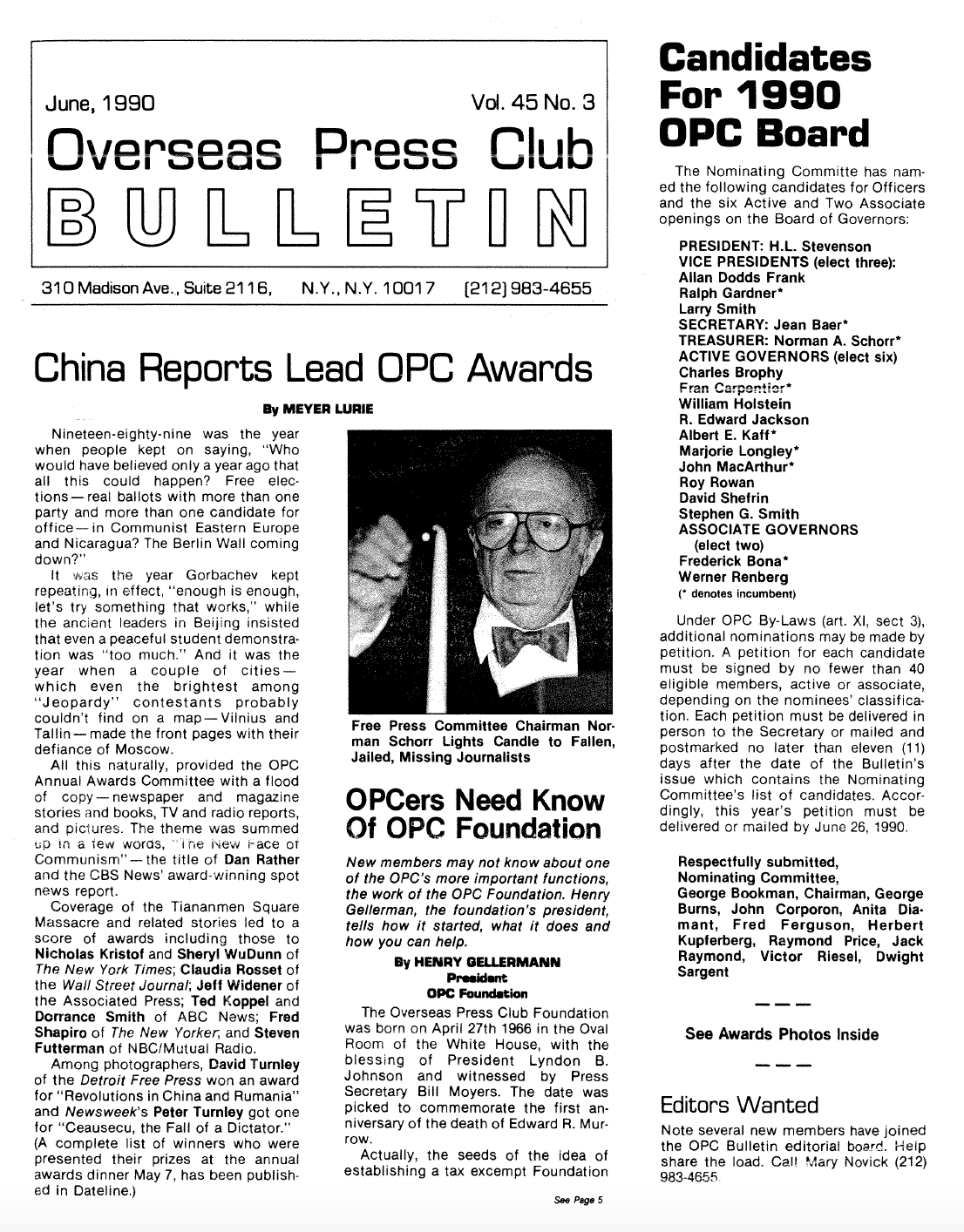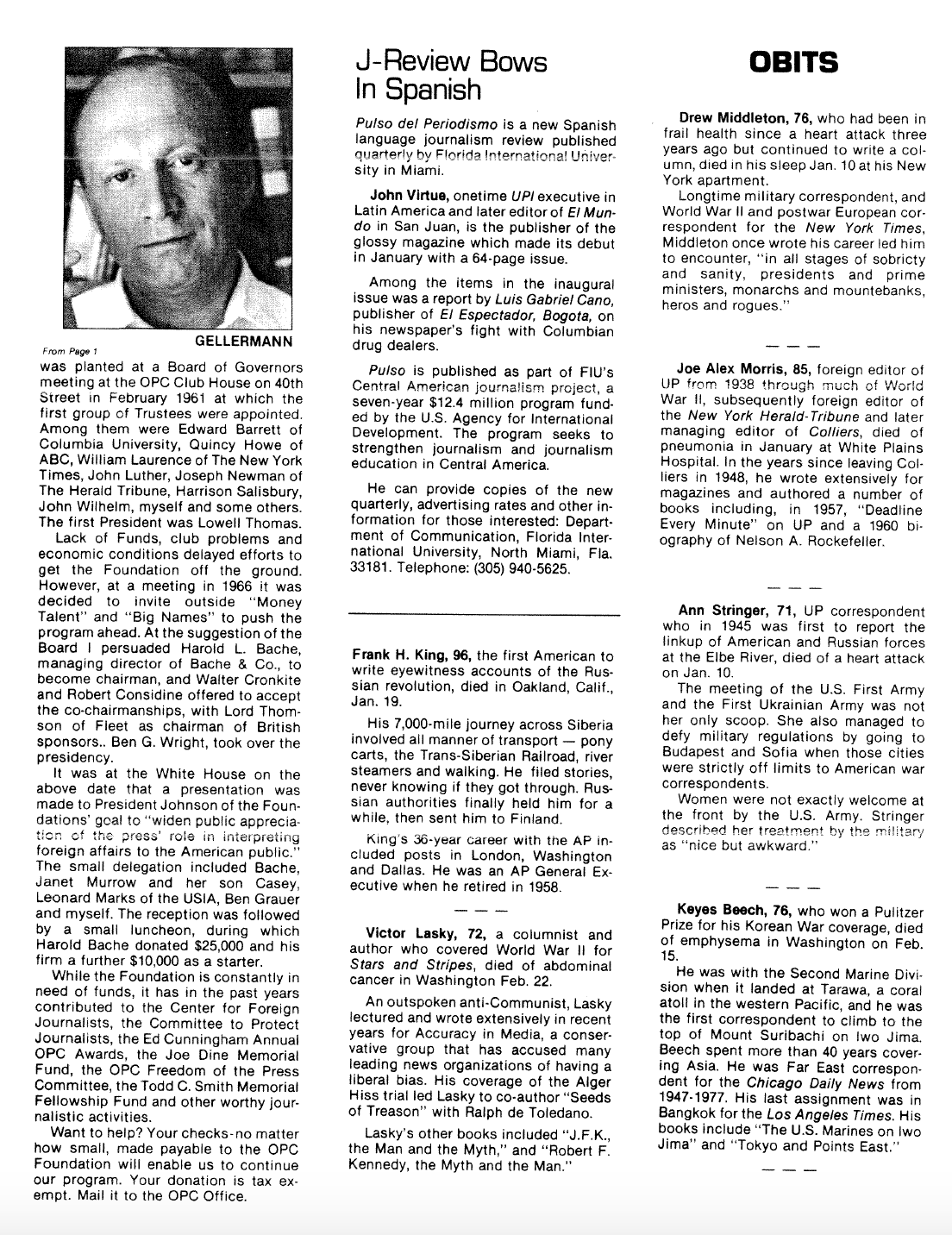The History of the Overseas Press Club Foundation
Written by Bill Holstein, OPC Foundation President Emeritus
The Overseas Press Club Foundation has a colorful history, to put it mildly. The Overseas Press Club of America, a membership organization, had a symbiotic relationship with the Correspondents Fund, a non-profit that possessed a great deal of money. But relations started deteriorating in the 1960s and Henry Gellerman, a former German soldier who was captured during World War II and became a translator for Allied forces, drove the creation of a new non-profit, namely the OPC Foundation. It was born on April 27, 1966 in the Oval Room of the White House. The date was picked to commemorate the first anniversary of the death of Edward R. Murrow, who had been partly responsible for raising the funds that the Correspondents Fund, now defunct, enjoyed.
The timing was key because in October 1969, the OPC and the Correspondents Fund suffered a permanent rupture--the club's manager had embezzled a significant amount of funds. The OPC was kicked out of its headquarters on 40th Street and started a 20-year period of wandering through the media wilderness. The foundation tagged along. H.L. Stevenson, the hard-charging, hard-drinking Southerner who had been editor in chief of United Press International, became president of the OPC and over a period of time confronted the embittered Gellerman, who would not tell the OPC's board anything about the foundation's finances.
When I first started attending OPC Foundation lunches in the basement of the Tudor Hotel in the late 1980s, the foundation granted two $1,000 scholarships to two New York-area college students. No flights, no hotels. That was all it could afford. It appeared that the foundation had only a total of $10,000.
Stevenson kept the foundation alive and persuaded Allan Dodds Frank to become president when I was serving as president of the OPC itself (1994-1996.) At the end of my presidency, I agreed to become president of the foundation. We started building the foundation on the back of the OPC's Executive Director Sonya Fry, who did double duty running both the club and the foundation. We eventually found a strong executive director for the foundation in the person of Jane Reilly, and we were able to manage the foundation separately from the OPC. I was president for 27 years and during that time we expanded our awards to include fellowships, meaning placements in the foreign bureaus of the Associated Press, Reuters, the Wall Street Journal and other news outlets. We increased the number of awards to 18 and stipends increased from $3,000 to $4,000, depending on whether a winner was going to go to a foreign bureau.
It all worked out. Today we are the largest and only non-profit organization dedicated exclusively to identifying future generations of international correspondents.


